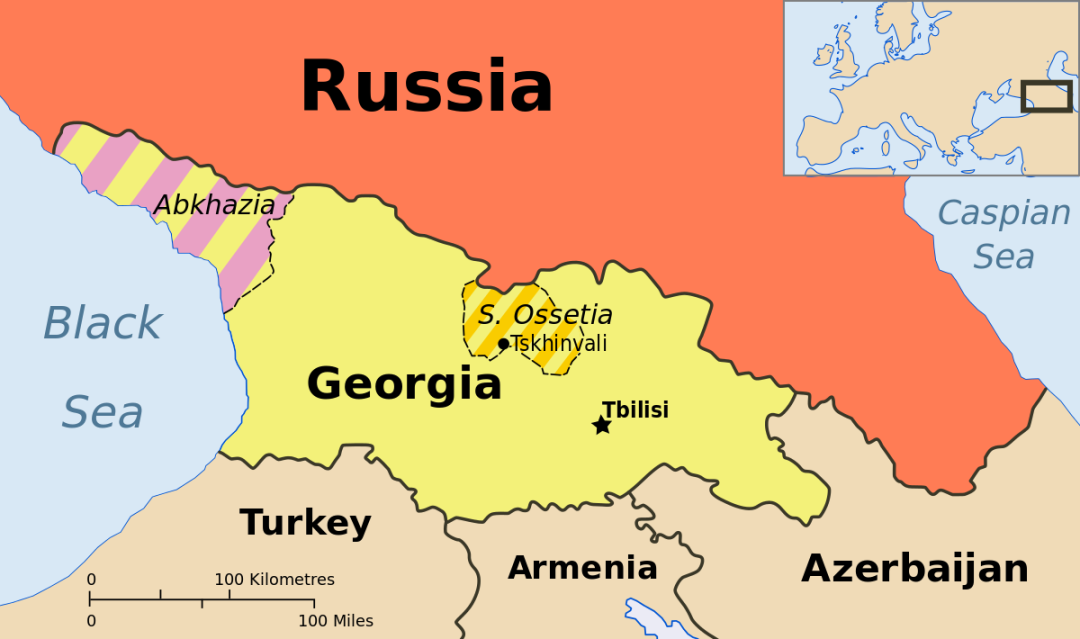
Conciliation resource study on Georgia-Abkhaz reconciliation

On 3 February, Conciliation Resources published the results of their survey conducted by the Caucasus Research Resource Center in April 2020 among the adult population of Georgia over the reconciliation possibilities with Abkhazia, reported jam news. The survey questioned a total of 1,351 people (roughly 46% women and 54% men, and a range of age groups), and the individuals were asked about actions their government could take in order to overcome the territorial conflict with Abkhazia, and about their attitudes to dealing with the past.
When presented with a range of potential steps that could be taken, the majority (69.7%) of respondents opted for direct dialogue with the de facto authorities in Abkhazia. In the event that officials in Tbilisi were to start direct talks with counterparts on the Abkhaz side of the conflict, almost three quarters of the Georgian public would see this as positive, if we extrapolate from these survey results to the whole population. The second most popular step (48.4%) was to identify common interests and ways to resolve them together, followed by support for development of a range of areas within Abkhazia: healthcare (45.1%), education (40.3%) and the economy and trade (32.7%). Other answers included fostering greater contact between Abkhaz society and the international community and its institutions (23.9% support) and even supporting the development of the de facto state institutions in the region (21.7%).
The survey also showed that a slightly higher percentage of women (71.4%) than men (70.5%) responded positively to the question of whether the Georgian government could take more steps to improve relations. Only 8.8% of women (as opposed to 14.4% of men) were of the opinion that the government could not take steps in that direction. Roughly the same percentage of age groups responded positively, with a correlation between higher levels of education and positive opinion that more can be done.
Interestingly, there was a degree of regional variation, with Tbilisi, the capital, proving more sceptical – 69.6% responded positively in Tbilisi, and 13.1% negatively, whereas in regional towns, 75.7% gave positive responses and only 8.6% felt more steps could not be taken. Respondents living in rural areas were more in line with Tbilisi residents, with 68.5% in favour, and 12.1% against. Significantly, respondents from the internally displaced community – people who have been the most personally impacted by the conflict and who have been living in exile for almost three decades – were the most positive about the potential to take steps to improve relations. 78.2% of this group were in favour of the Georgian government taking action, with only 9.2% against.
The survey also tested how ready the Georgian public is to reflect on the recent violent past. Almost a third (31.1%) of those questioned responded positively to the question “Is it important for Georgian society to re-assess, or evaluate the Georgian-Abkhaz armed conflict of the 1990s?” Slightly more (32.3%) responded negatively, with the largest number (36.1%) undecided.
Of a range of possible initiatives to deal with the past, the most popular was enabling discussions about the Georgian-Abkhaz armed conflict among different social groups of Georgian society (47.2%), followed closely by direct dialogue about the conflict in the 1990s with current residents of Abkhazia (45.3%). Over one third of respondents were in favour of having an independent international expert assessment of the conflict, and of making eye-witness accounts by people involved in the armed conflict widely accessible to the public. Just over one quarter agreed with providing access to educational materials that reflect the existing differences in perspectives on either side of the Georgian-Abkhaz conflict.
Conciliation Resources is a London-based independent organisation working with people in conflict to prevent violence and build peace, providing advice, support and practical resources. The organization works with partners in the South Caucasus, East and Central Africa, Southeast Asia (The Philippines), South Asia (Jammu and Kashmir), Pacific (Fiji and Bougainville, an autonomous region in Papua New Guinea), Latin America (Colombia), the Horn of Africa (Kenya and the Ogaden region of Ethiopia - also known as Somali Regional State) and West Africa (Mano River Union and Nigeria).
See Also


Armenia Records 5.9% GDP Growth in 2024, Missing 7% Goal

Yerevan Balances Strategic Ties with Both US and Russia, Says Foreign Minister

FM Mirzoyan: Peace Deal with Azerbaijan Is Within Reach

Pashinyan and Erdogan Hold Call, Reaffirm Commitment to Ongoing Dialogue

